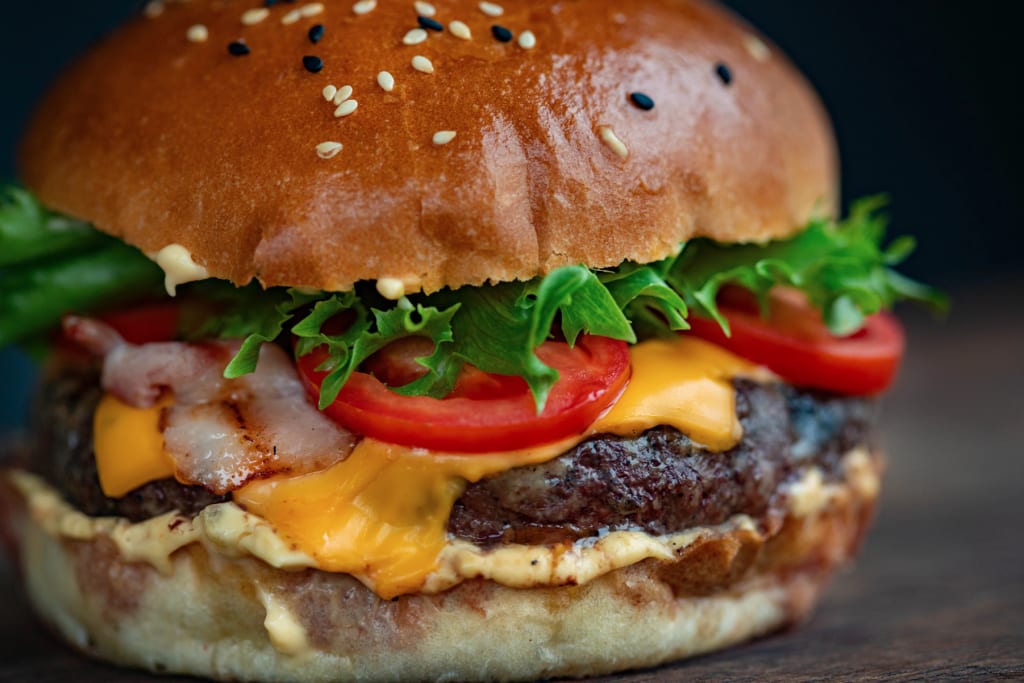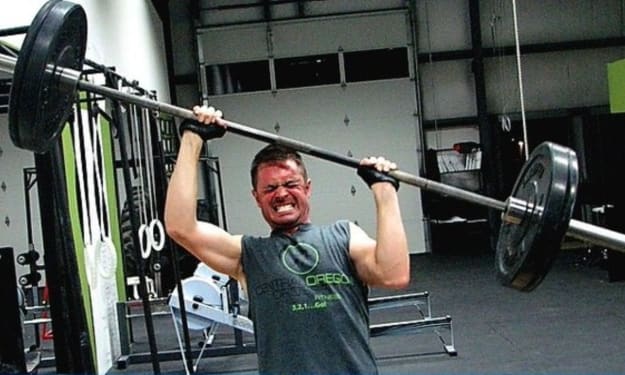Protein For Gains
Why? How Much? Where From? How Often?

Anyone who has ever spent any time in a locker room, reading Men's Fitness or any other fitness related magazine, or chopped it up with the boys over how so-and-so got so ripped, the topic of protein probably came up. When it comes to building strength and size, protein is at the top of the list of things to make sure you are addressing and optimizing around.
So let's dig into that a bit.
Why is protein so important to muscle growth?
I am going to reface this by saying I am trying my best to keep this top-line and not too technical or go into too deep of detail. Proteins are the primary structural components to cells. While protein that you eat in your diet performs a few different roles, the primary function is to build and repair cells, including the muscle cells that are damaged during a workout. In as simple of terms as I can summarize, muscle growth is the byproduct of muscle repair. When you workout, your muscles get microscopic tears in their fibers. When your body repairs the damage, it adds a little more muscle in preparation to handle that stress again in the future. This is also why progression is so important in a workout program (see my previous blog post about the importance of "Progression"). You need to make sure you have enough protein in your diet to rebuild the your muscles as maximally as possible.
Because protein is used to rebuild many types of cells in the body, not just muscle, if you are working out, you will need to increase the amount of protein you are eating in order to make sure there is enough to go around. Rebuilding muscle is not necessarily a life preserving function, and if there is not enough protein your system, your body will prioritize the use of what protein is available to life supporting functions first and your biceps second.
Protein is made up of amino acids, of which there are 20. Nine of those are considered "essential" because the body cannot produce them on its own and they must be consumed in your diet. Four are considered "non-essential" because your body can produce them on it own. The final eight are considered "conditional" because they can become essential and need to be consumed in the diet as needed. The amino acid content of the protein you eat is very important, so that you can be sure you are getting a balance of what your body needs. In other words, not all protein is created equal.
If what type of protein I eat is so important, what types should I be eating? The short answer is a variety. High quality meats, poultry and fish/seafood are pretty obvious. Eggs, milk, yogurt and cheese are as well. For a more plant-focuses approach, beans, lentils and quinoa are good choices, as are soy and tofu. You can also supplement your meals will protein bars (Rx Bars are my favorite due to the limited number and quality of the ingredients) and protein shakes (Accent Protein is my favorite, again due to the quality and limited number of ingredients). The key is to make sure you are getting a mix of the above. Eating only one form of protein will limit your intake of the appropriate amino acid balance.
How much protein should I be eating? Healthy, but non-active adults should consume between .4 - .5 grams of protein per 1lbs of body weight. If you weight 180lbs, you should be eating 72 - 90 grams of protein per day. If you participate in a lot of aerobic focused workouts (jogging, cycling, etc.), you need increases to .5 - .7 grams per 1lbs of body weight. If you weight 180lbs, that is between 90 - 126 grams. If strength training is your jam, .6 - .8 grams per 1lbs of body weight is recommended. If you weight 180lbs, that's 108 - 144 grams of protein.
Your protein intake should be spread out throughout the day. If you consume too much in one sitting, the body will just excrete the excess it cannot absorb. Research has shown that your body can absorb around 25 - 35 grams of protein in one meal before the excess is simple just excreted.
I get it, this is hard to do. If you're serious about strength training and muscle growth, I am basically tell you to eat 30 grams of protein 4-5x a day. If I am being honest, even I find that damn hard to accomplish and I don't honestly come close to that on a consistent basis. Does that mean you won't grow? Not at all. The numbers quoted above are a.) generalizations, and b.) based on upper limits. What it does mean though is that you need to be looking at your protein intake, where it is coming from, and making an effort to optimize where you can. If you are stuck on a plateau or aren't putting on as much muscle as you'd like or think you should be, this is a very good place to start looking to see if it has to do with too little protein in your diet.
Get out there, get in a kick ass workout, and eat a grass-fed hamburger.
About the Creator
Daniel Wilkins
I am a NASM (National Academy of Sports Medicine) Certified Personal Trainer, MMA Conditioning Specialist and Youth Exercise Specialist. I have been competing, and coaching both children and adults, in Brazilian Jiu Jitsu (BJJ) since 2009.
Enjoyed the story? Support the Creator.
Subscribe for free to receive all their stories in your feed. You could also pledge your support or give them a one-off tip, letting them know you appreciate their work.






Comments
There are no comments for this story
Be the first to respond and start the conversation.